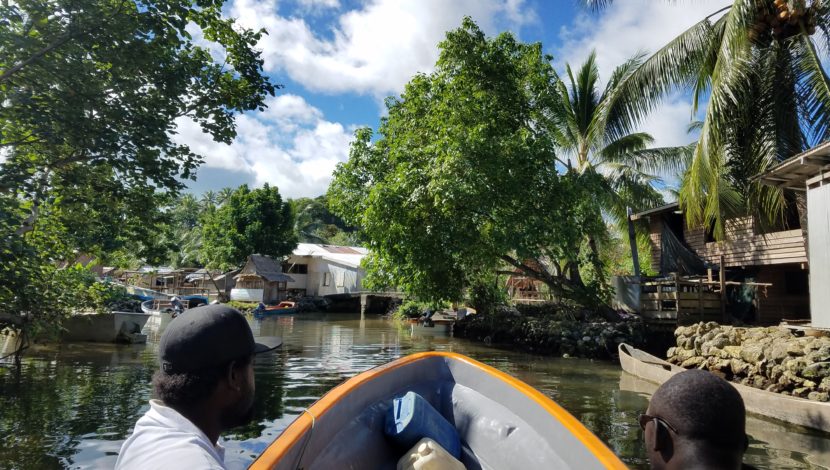The Unitarian Universalist Service Committee advances human rights through grassroots collaborations.
Community-Led, Human Rights-Based Solutions to Climate-Forced Displacement

Communities are relocating because of the impacts of climate change. From Papua New Guinea and the Solomon Islands to Louisiana and Alaska, households and entire communities have relocated or are planning relocations across the globe, forced to leave their homes, their livelihoods, and the land that shaped their culture.
While frontline communities have the most appropriate solutions to these challenges, they receive the smallest share of funding, and are sidelined by state and international decision makers. Trends in financing favor climate change mitigation over other approaches. No reliable mechanisms exist for community organizations to access international funds directly. Indigenous communities face additional hurdles accessing funds from national governments — and it is even more difficult for unrecognized tribes.

“In Isle de Jean Charles, we have discussed how it could be even better if we could work through in-kind donations and other [nongovernmental] grants … . If you go away from the colonialist types of funding sources, you could advance strategies that are managed and envisioned by the community.” – UUSC Parter Kristina Peterson, Lowlander Center facilitator, Louisiana, USA
This report provides background on the issue, insights from UUSC’s local partners, an analysis of human rights funding data, and a call for additional funding and advocacy to support community-led solutions to climate-forced displacement. As demonstrated in the report, the human right to self-determination is the critical condition to supporting and funding this work. The frontline experts – local leaders who are most affected – should plan if, when, and how they relocate.